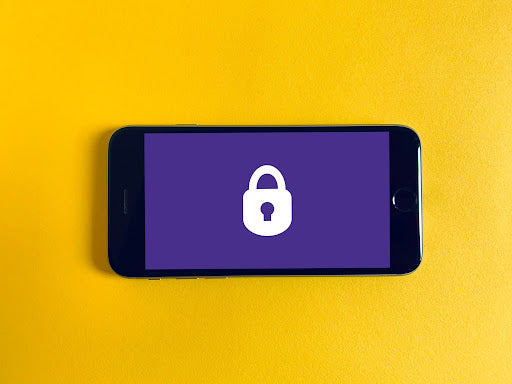Privacy Initiatives For Phones

As smartphones continue to develop in popularity, with companies advancing device features and functionality at every turn, privacy and security remain a top concern for users. As much as consumers demand privacy from phone companies and service providers, policymakers must continue to expand their commitment to technological and social features that protect users from data breaches in their day-to-day lives. No matter how much we try to prevent data from landing in the wrong hands, we leave behind a trail of “digital breadcrumbs” that contain valuable and vulnerable information that companies and individuals can use in ways unapproved by us. While some of the data left in our digital trail are beneficial for understanding things like humanitarian issues, electronic data also contains sensitive information regarding our geo-location, finances, and social life. In the following article, we discuss how policymakers and consumers are moving forward in the digital age and how we must continue to keep smartphone users safe from financial, social, and physical harm.
Who’s Responsible for Mobile Data Security?
Privacy issues are complex in any aspect, but they become increasingly complicated within the smartphone landscape. Compared to older technologies such as computers, mobile phones are a new technology that continue to evolve in terms of potential uses, functionality, and mobile platforms, which begs the question - who’s responsible for user privacy of smartphones?
While it would be nice to lay the responsibility on one individual group or organization, the reality is that multiple players can potentially leave users’ data vulnerable. These players include:
- Mobile Carriers
- Mobile Device Manufacturers
- Mobile App Developers
- Mobile SDK Developers
- Mobile App Platforms
- Other Third-Party Individuals and Organizations
While numerous parties are collectively responsible for mobile data security, US regulators have spoken up, pinning mobile app developers as the primary party responsible for providing everything from transparency to protection of user data.
Mobile Data Transparency
Since mobile devices consistently transmit data over our electronic networks, we must be aware of the sensitive information being transferred from one place to another. Most notably, we need to focus on our personal data that can leave us vulnerable in a variety of different ways. While we are all aware that data is used by mobile applications, websites, and just about everything else, few people actually have a strong understanding of how the data can be used. Ask yourself a question. When was the last time you read the details of the terms and conditions that we are often so eager to accept? If you’re like most of us, you just assume that these applications or web pages are using your data for harmless purposes, maybe to improve on their business or better understand their consumer base. What about the ethics behind it all, though?
In 2018, Cambridge Analytica used a mobile app to mine the data of over 50 million Facebook users without them knowing, building a voter profile of anyone who accepted these terms and conditions. This is just one of many examples of how your privacy may be invaded without your knowledge. In response to these recurring issues, policy and lawmakers have pushed back hard, trying to build the rights of individuals to protect them from such invasions. While progress is being made concerning mobile privacy, transparency must continue to increase if we wish to live in a world where our data remains ours, unless we knowingly give permission otherwise.
Best Practices for Mobile Privacy
As mentioned earlier, many players are responsible for the safety and privacy of users and their data. While it’s true that developers, manufacturers, and mobile carriers must push for a more secure future for smartphone users, there are many things we can do on the individual level to help protect our data and improve our overall security.
The easiest and most obvious way of keeping your mobile privacy secure is by keeping your mobile phone physically safe. By keeping your device with you or in a secure location at all times, you can prevent ill-natured access to your data. It is not uncommon for thieves to use your physical device to access your data, in turn putting you and your information at serious risk. To further your device’s physical security, you can keep records of all data off of your device. This makes it harder for anyone to access your personal information.
For data breaches via operating systems, mobile apps, and any other digital processes, it’s a smart idea to enable the security features available on your phone. While not fully inclusive for every device, the following security features are commonly found on most mobile devices:
- Password or PIN Access
- Unlock Patterns
- Device Lockouts
- Auto-Wipe Features
- Phone Tracking (GPS)
- Encryption
By taking the time to set up these security features, you are far less likely to run into data breaches that leave you and your information exposed.



 US
US CA
CA UK
UK EU
EU Global
Global



